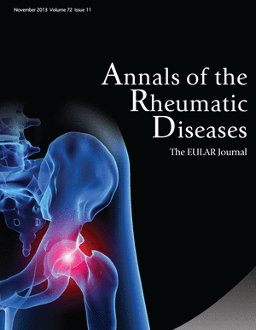 According to a brand new study from Adelaide just publicized within the Annals of the Rheumatic Diseases,when high-dose fish oil is added onto conventional “triple therapy” in early rheumatoid arthritis symptoms – the patients tend to be more inclined to benefit and achieve a better overall result.
According to a brand new study from Adelaide just publicized within the Annals of the Rheumatic Diseases,when high-dose fish oil is added onto conventional “triple therapy” in early rheumatoid arthritis symptoms – the patients tend to be more inclined to benefit and achieve a better overall result.
RA is an inflamation related, auto-immune problem in which the human body incorrectly attacks the cushining of ones joints, resulting in pain, redness and joint destruction. To control symptoms and prevent joint damage, rheumatologists typically try one or a combination of disease-modifying anti-rheumatic drugs (DMARDs). One effective and often-used mixture is methotrexate, sulfasalazine and hydroxychloroquine – usually dubbed “triple therapy” – nonetheless, it does not work for everybody.
Fish oil, which features anti-inflammatory omega-3 essential fatty acids has been proven in previous studies to provide joint relief and reduce soreness associated with RA – and to enable sufferers to cut-back in the utilization of nonsteroidal antiinflammatory medications (NSAIDs), including ibuprofen and naproxen.
Lead research author Susanna M Proudman, a clinical associate professor at the University of Adelaide mentioned they wanted to decide on whether fish oil, in suitable anti-inflammatory doses, had additional advantages with regards to disease modifying capabilities beyond lowered joint swelling and soreness.
For this randomized, doubleblind study, the scientists concentrated on individuals with “early” RA (those who had RA signs for less-than a year) but hadn’t yet been treated with DMARDs. Individuals were broken into 2 groupings: those while in the high dose fish oil grouping got 5.5 grams of fish oil each day while those inside the low dose group (the control) got 0.4 grams per day.
Patients also had triple therapy in a ‘treat-to-target’ tactic.
Treat-to-target means drug is adjusted at physician visits if an individual will not reach a established treatment target of remission or low disease activity, as measured by blood tests along with the amount of tender / swollen joints.
Sufferers were assessed every three days for the first twelve weeks and every six weeks subsequently.
The analysis discovered that at 12 months, ten percent of patients in the high dose fish-oil group had ‘failed’ triple therapy when compared with 32 % of patients in the control group. Making treatment 3 times as effective for those in the fish oil group. The necessary time to reaching remission was likewise considerably less. Furthermore, much more people in the high dose fish oil group compared to the control group had reduced NSAIDs by 12 weeks. Something that was discouraged during the analysis. Doctor Proudman stated that the rationale was that the omega-3 fatty acids in the fish oils act like NSAIDs in the body.
But simply eating fish cannot be enough to give you a therapeutic dose of fish oil; a dietary supplement will be needed. As Doctor Proudman says whilst fish-oil is readily obtainable, the most important thing is always to take a sufficiently high dose to get therapeutic benefits.
The results are good news for RA sufferers who also have another strategy to control their disease in a more all-natural way. Patients are cautioned not to restore DMARD treatment with fish-oil. But Doctor Proudman said that when employed together, supplementing with a few grams of fish-oil appears like it could be very helpful, especially as it may decrease NSAID use.
References:-
Proudman, Susanna M., et al. “Fish oil in recent onset rheumatoid arthritis: a randomised, double-blind controlled trial within algorithm-based drug use.” Annals of the rheumatic diseases (2013): annrheumdis-2013.

